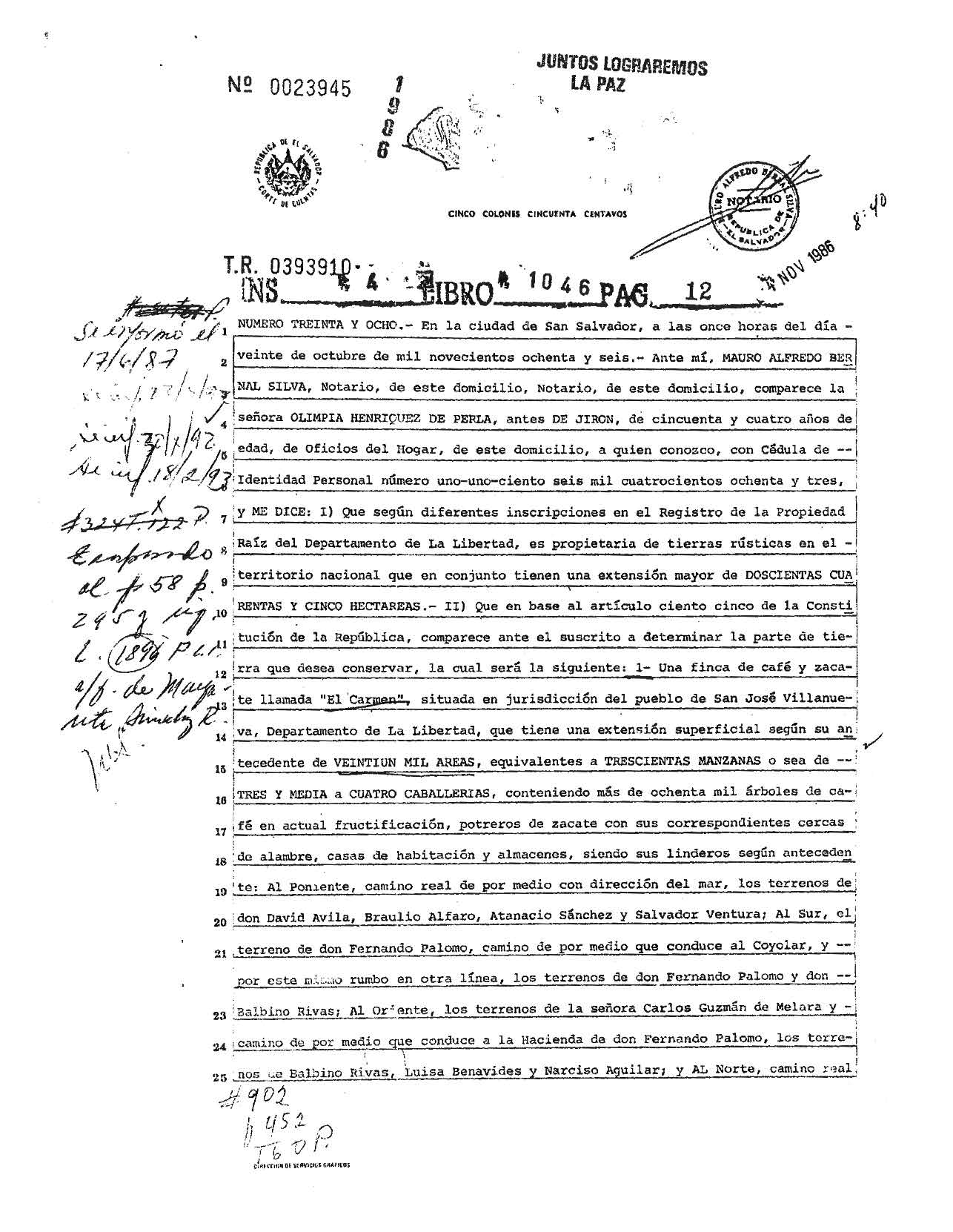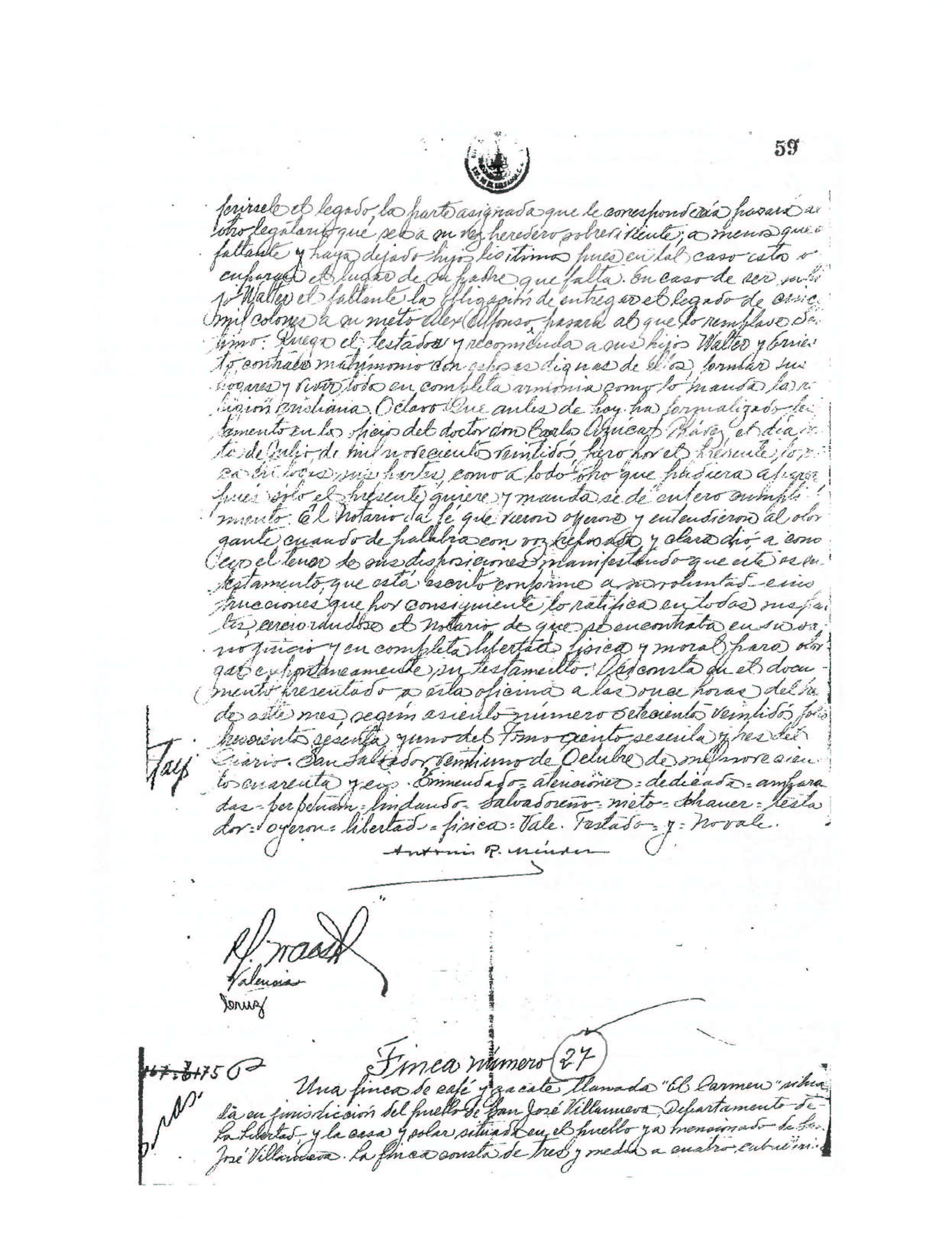The old hacienda El Carmen
According to existing documentation, the land where
Locate this old house or hacienda helmet, it was acquired
by the German citizen Hilldebrandt at the beginning of the s.
XX, who bought it to Mr. Gustavo Lozano. By 1912 the municipal mayor
from San José Villanueva recognized the title of Nuevo Owner
OF THE EL CARMEN FINCA IN THE PERSON OF MR. Hilldebrandt, this farm is
dedicated to the production of cattle and subsistence crops
such as corn, beans and rice in addition to the sowing and trade of coffee.
The original extent of the property was 300 apples, about 4 cavalries
or 21 thousand areas, according to writing and bordered the land
of landowners like Fernando Palomo, Ángel Guirola and Hacienda el
Charm to the northeast, to the south with land owned by the Deininger family,
Today current Walter Thilo Deininger and west park with the hacienda
Montemar.
His helmet had the owner's residence and 6 associated structures to livestock production and coffee drying, among which had a patio of medium dimensions (18mts x 19mts), a structure of wood and tiles that hosted the kitchen and attached rooms for storage of raw materials for food processing, stables, stable for attention and milking of cows, thus as scales to weigh carts and parking for these.

Deed dated April 1986 where urban Hilldebrandt is appointed as owner of the land of the farm El Carmen.
At the end of the 80s the hacienda still had 1000 heads of
cattle including copies for fattening and generated 1200 colones
Diaries in milk that was distributed in the town of San José Villanueva.
This estate El Carmen was sold in 1992 to Messrs. Eduardo
Poma and Rogelio Peña, along with 5 other properties to build a
residential called "Quintas recreational the hacienda", a place in the
that the new inhabitants of El Carmen had an alternative lifestyle
to stressful city life; But it is until 2001, then
that the project is acquired by Inversiones Roble, that the hacienda
its development begins as a new housing project and is preserved
The helmet as its heritage.

Deed dated October 6, 1946 in the one that declares heir to the hacienda El Carmen to Walter Luis Hilldebrandt.
The hacienda El Carmen has a diversity of architectural elements that make up its aesthetics and evidence considerable sumptuousness, Such attributes can be evidenced in the prostile and wood moldings that decorate the windows. An element of particular interest is the binding of the house, recognized as "Calcáreos floors", which are formed abroad by a checker -shaped bicromo design (board of chess), while inside for geometric designs, polychromes and fitomorphs (forms associated with plants). Its origin dates back at the time of the Renaissance in 16th -century Europe, popularly recognized as “Banchetto. These floors can be found in a series of buildings of great social and historical prestige of the current Salvadoran territory, corresponding to the Republican era (19th century). However, On its exterior, particularly in the coffee drying court and other architectural sets, the presence of tiles can be evidenced of cooked mud, whose production technique is introduced from the process of conquest and European colonization during the 16th century.
